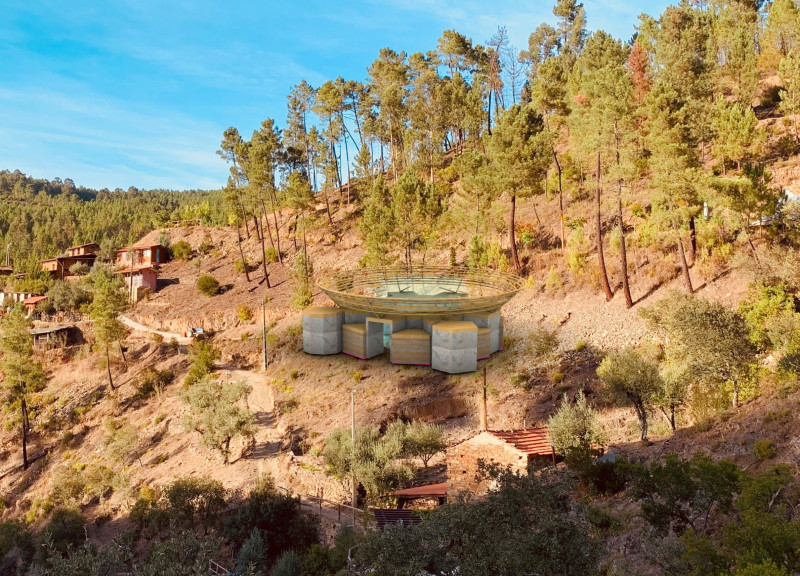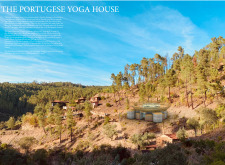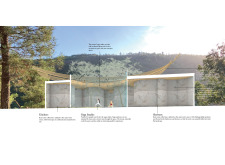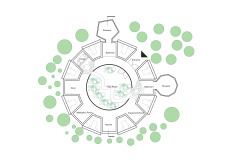5 key facts about this project
The Portuguese Yoga House is located in Portugal and focuses on creating a strong bond between living spaces and the surrounding nature. Designed primarily for yoga practitioners, it invites users to connect with the environment through its careful spatial arrangement and thoughtful design elements.
Architectural Concept
This yoga house centers on tranquility and immersion in the natural world. The yoga studio is open and bright, featuring an abstract roof that allows natural light to enter freely. This design provides a clear view of the landscape outside, enhancing the yoga experience and allowing practitioners to feel part of their environment. The kitchen, bathrooms, and other supporting areas are designed to promote comfort and practicality, ensuring a consistent visual appeal throughout the space.
Material Selection
Sustainability is a key focus in the choice of materials. Reclaimed glass is incorporated into the yoga studio, adding to its open atmosphere while promoting eco-friendly building practices. Local limestone is used for the walls, which helps to keep the interior cool, reducing the need for air conditioning. Using these materials reflects a commitment to responsible building practices that prioritize the environment, energy efficiency, and resource conservation.
Outdoor Integration
Landscaping is an essential component of the design, enhancing the overall experience. A natural stream runs alongside the building, cooling the area and providing soothing sounds for users. Stepping stones laid in the stream create inviting pathways, encouraging people to explore the outdoor space while interacting with nature in a meaningful way.
Design Features
Attention to detail is evident throughout the house, with design elements that enrich user experience. A rainwater collection system serves as the primary water source for kitchens and showers, demonstrating a focus on sustainability. Biodegradable products are used in bathrooms to ensure wastewater can safely return to the ecosystem. The yoga studio's layout is flexible, allowing for various activities, which supports diverse practices within a calm and peaceful setting.





















































